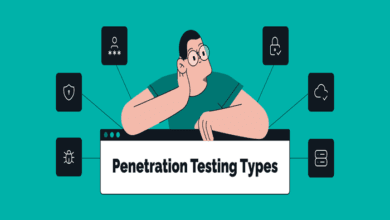B.Tech Full Form: Everything You Need to Know About Bachelor of Technology

The term “B.Tech Full Form” stands for “Bachelor of Technology.” It is one of the most sought-after undergraduate degrees in the fields of engineering and technology. Aspiring students who aim to build a strong career in technological domains often opt for this program. The B.Tech course is designed to equip students with practical skills, theoretical knowledge, and problem-solving abilities, enabling them to thrive in various industries.
In this comprehensive guide, we will explore the B.Tech full form, course details, eligibility criteria, popular specializations, career opportunities, and much more. Whether you’re a prospective student or a parent helping your child make an informed decision, this article has everything you need to know.
More Read : Mehndi Design
What is the Full Form of B.Tech?
The full form of B.Tech is “Bachelor of Technology.” It is an undergraduate degree program focused on technological and engineering disciplines. The program typically spans four years and is offered by universities and colleges worldwide.
Why Choose B.Tech?
- Wide Range of Specializations: B.Tech offers a plethora of specializations, including Computer Science, Mechanical Engineering, Civil Engineering, Electrical Engineering, and more.
- Industry Relevance: The curriculum is designed to meet industry standards, ensuring graduates are job-ready.
- Global Recognition: A B.Tech degree is recognized globally, allowing students to pursue higher education or job opportunities abroad.
- High Demand: Technological advancements create a continuous demand for skilled engineers.
Eligibility Criteria for B.Tech
To enroll in a B.Tech program, students must meet certain eligibility requirements:
- Educational Qualification: Completion of 10+2 with Physics, Chemistry, and Mathematics as core subjects.
- Minimum Marks: Most institutions require a minimum aggregate score of 50%-60% in 10+2.
- Entrance Exams: Students must qualify for entrance exams like JEE Main, JEE Advanced, or state-level engineering entrance tests.
Top B.Tech Specializations
- Computer Science and Engineering (CSE): Focuses on software development, programming, and artificial intelligence.
- Mechanical Engineering: Deals with the design, development, and maintenance of mechanical systems.
- Civil Engineering: Involves planning and construction of infrastructure projects like bridges, buildings, and roads.
- Electrical Engineering: Centers around electrical systems, power generation, and circuit design.
- Electronics and Communication Engineering (ECE): Combines electronics with communication technologies like telecommunication and signal processing.
- Information Technology (IT): Emphasizes on managing and implementing IT solutions in businesses.
B.Tech Course Structure
The B.Tech program is structured to include both theoretical and practical learning. Below is a breakdown of the typical curriculum:
- First Year: Foundation courses in Physics, Chemistry, Mathematics, and Basic Engineering.
- Second Year: Introduction to core subjects specific to the chosen specialization.
- Third Year: Advanced topics, elective courses, and mini-projects.
- Fourth Year: Focus on internships, major projects, and industry exposure.
Admission Process for B.Tech
- Entrance Exam: Appear for relevant entrance exams.
- Application Process: Apply to universities based on your entrance exam scores.
- Counseling: Participate in counseling sessions to select colleges and specializations.
- Enrollment: Complete the admission formalities to secure your seat.
Career Opportunities After B.Tech
A B.Tech degree opens doors to numerous career paths in various industries, including:
- Software Engineer: Develop software applications and systems.
- Mechanical Engineer: Design and maintain mechanical devices.
- Civil Engineer: Work on construction and infrastructure projects.
- Data Scientist: Analyze data to derive insights and solutions.
- Network Engineer: Manage and maintain computer networks.
Higher Studies After B.Tech
Students can also pursue higher education to specialize further or switch to management roles. Popular options include:
- M.Tech: Advanced studies in the same or a related specialization.
- MBA: Focus on business management and administration.
- MS: Pursue a master’s degree abroad.
- PhD: Engage in research and academia.
FAQs About
1. What is the duration of a B.Tech program? The duration of a B.Tech program is typically four years, divided into eight semesters.
2. Can I pursue B.Tech after completing a diploma? Yes, diploma holders can pursue B.Tech through lateral entry programs, which allow them to join directly in the second year.
3. What are the top entrance exams for B.Tech in India? Top entrance exams include JEE Main, JEE Advanced, VITEEE, SRMJEEE, and state-level tests like MHT CET and WBJEE.
4. Is B.Tech equivalent to BE? While both B.Tech (Bachelor of Technology) and BE (Bachelor of Engineering) are undergraduate engineering degrees, B.Tech emphasizes practical and application-based learning, whereas BE focuses more on theoretical concepts.
5. Are internships mandatory in B.Tech? Yes, most universities make internships a mandatory part of the curriculum to provide real-world experience.
Conclusion
A B.Tech degree is not just a qualification but a gateway to a promising career in the field of technology and engineering. With its practical approach, diverse specializations, and global recognition, B.Tech equips students with the skills and knowledge to excel in their chosen fields. Whether you aim to innovate in technology, construct modern infrastructure, or manage complex systems, B.Tech can be your first step toward achieving your career goals. Take the time to explore your interests and choose a specialization that aligns with your aspirations.




